Mallorca has been attracting visitors from Europe and further afield for decades not just for its warm climate and stunning beaches but also for its history and culture and, in more recent years, to savour its award winning cuisine, walking and cycling trails and its swathe of new luxury and boutique hotels.
But how to protect this unique island paradise for future generations and create a sustainable Mallorca ?
With tourist numbers peaking at some 12 million in 2019 , the Mallorcan authorities already had a plan in place.
Sustainable Tourism Tax for a Sustainable Mallorca
Introduced in 2016, this tax (often referred to as ‘the eco tax’) requires visitors to pay between €1 and €4 euros per day, depending on time of year and type of accommodation. It has proved to be a tremendous success. These contributions from individuals amount each year to a very significant sum used to finance projects aimed at protecting the environment, restoring cultural heritage and promoting ecotourism on the island.
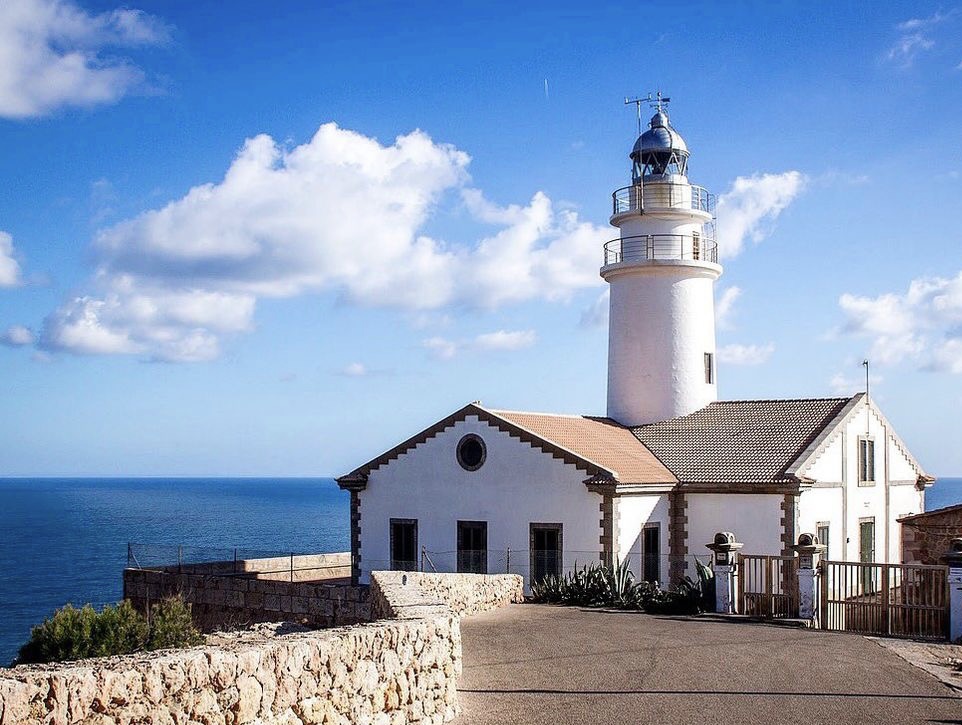
There are over 60 tourist tax-funded projects underway in Mallorca including the restoration of the medieval wall around the town of Alcudia in the northeast of the island, improvements to water-treatment and desalination plants, better maintenance of drainage channels (known as ‘torrents’) which play a critical part in the island’s agriculture as well as restoration works on island landmarks such as the castle in Cabrera and the lighthouse in Capdepera.
Aiming for a plastic – free Mallorca
One of the boldest moves took place in March 2021 with the ban on single-use plastics. No plastic glasses, plates, trays, cutlery, straws, coffee capsules, cotton buds or disposable razors or lighters can now be sold on the islands.
They have stopped short of plastic water bottles for the moment but this is where partnership with local organisations and private companies holds the key.
Philipp Baier, a local and owner of event company LifeXperience , was inspired to start cleanwave.org, a non-profit initiative aimed at tackling plastic water bottle consumption and waste. Around 1.5 million bottles of water were consumed per day in 2017 in the Balearics with less than a fifth recycled.
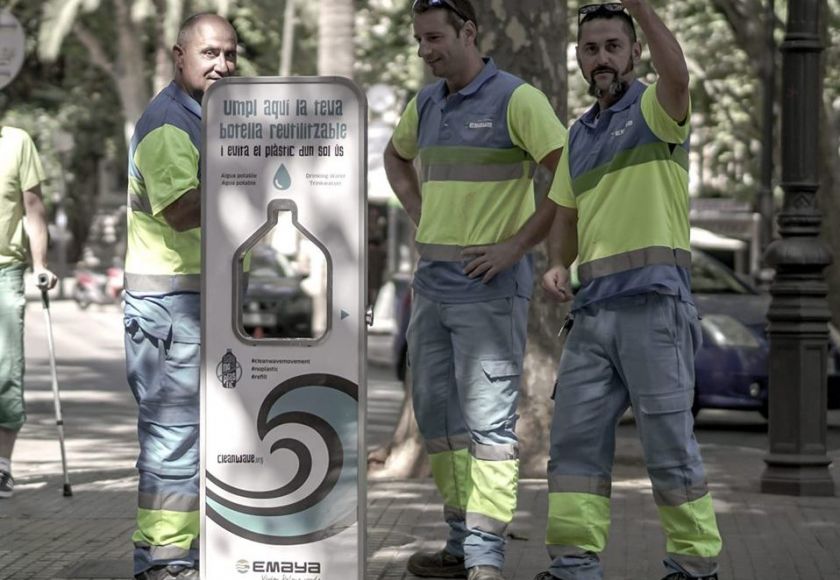
cleanwave.org grew out of the determintion of like-minded individuals, businesses, restaurants and hotels to tackle the problem and now offer free water bottle refill stations islandwide. The local government have also come on board and are installing permanent water refill points across Palma and all the tourist hot-spots.
As regards plastic in the sea , Save the Med, a locally founded charity, has a mission to ‘enable the Mediterranean Sea to recover its rich biodiversity and to thrive in harmony with local populations’ and, in addition to organising beach cleans etc , it also has a schools programme which educates the next generation in the importance of protecting the marine ecology of the island.
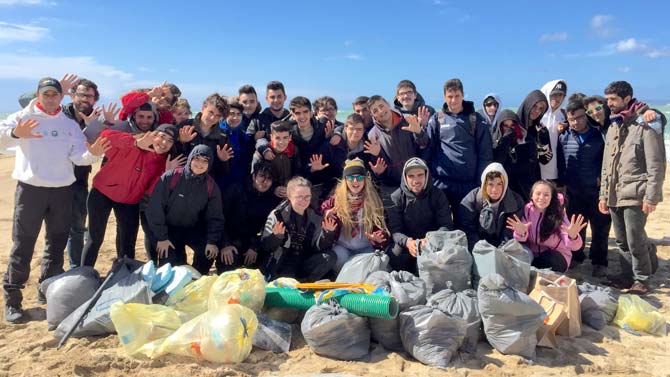
Hotels are doing their bit too. The Mallorcan hotel group, Iberostar is working with Wave of Change on the elimination of single-use plastics, the promotion of responsible fish consumption and coastal protection.
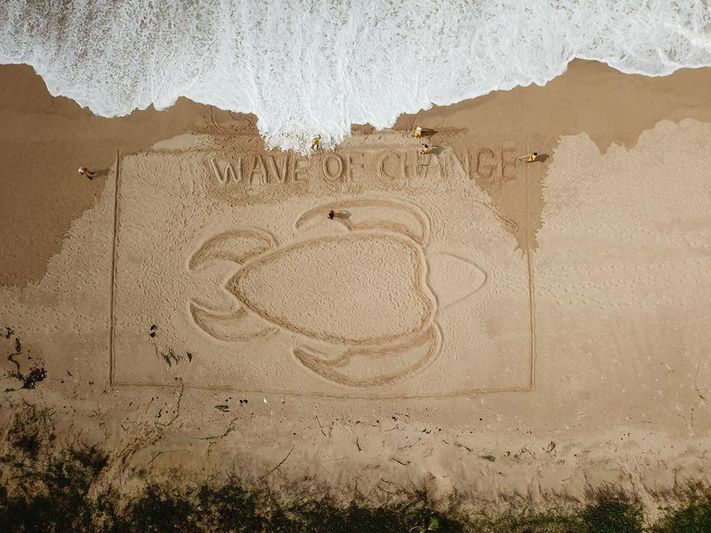
“Without sustainability there is no profitability, and without profitability we cannot be sustainable,” stresses CEO Sabina Fluxá “. All Iberostar hotels are now free of single-use plastic, just a few years away from waste-free by 2025 and carbon- neutral by 2030.”
In 2018, the Spanish hotel group Meliá, banned plastic and single use products and replaced them with biodegradable or environmentally friendly alternatives. Guests can participate in their Green Choice initiative by hanging a ‘Green Card’ on the door, meaning no need for bed linen and towels to be changed.
Making Mallorca a year-round destination
Spreading visitor numbers across the whole year serves to take pressure off resources and the environment during the high summer months and reduces excessive water, energy and fuel consumption during this high demand period – all contributing to a sustainable Mallorca.
With its mild climate, the emphasis has been to promote the island as a year-round activity destination, particularly for runners, walkers and cyclists.
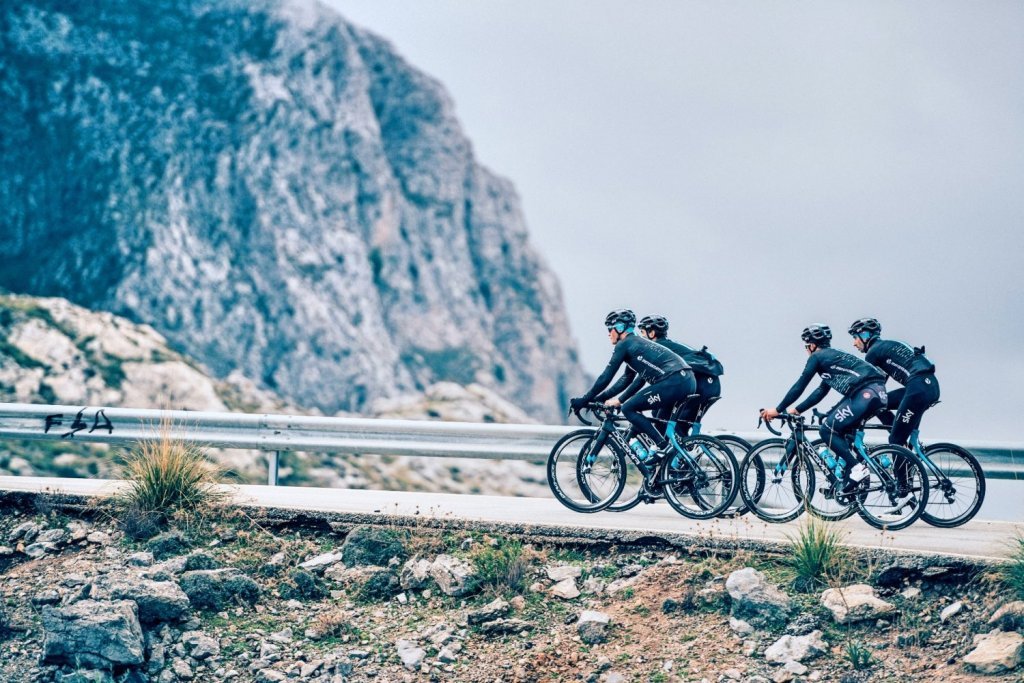
The TUI Palma Marathon kicks this programme off in October and walkers and cyclists arrive in their thousands.
Many hotels now have secure bike storage facilities and repair workshops. Palma City Council is currently extending the city’s 90km cycling network, with plans to have 100km of bike lanes in and around the Mallorcan capital in the coming years.
The jewel in the crown for walkers is the famous GR221 walking route which goes from south to north along the Unesco World Heritage Tramuntana mountain range. The eco tax has funded the upkeep of this ancient 170km routeway, with its signature dry stone walls.
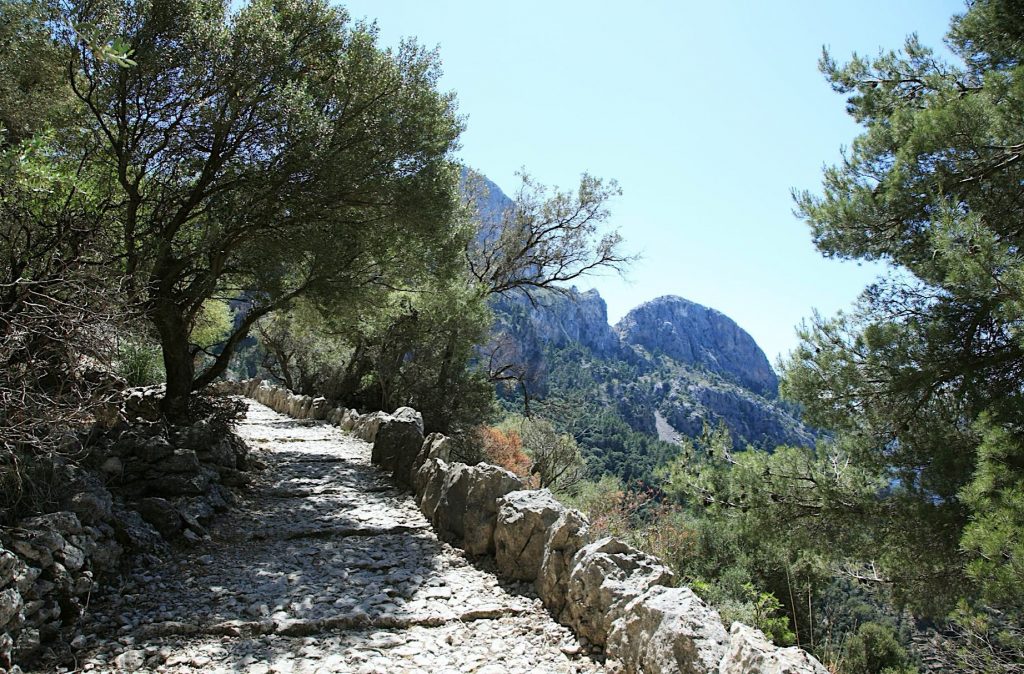
Refuges for walkers along the route are also benefiting . For example Ses Porqueres de Galatzó in heart of the Serra de Tramuntana, originally a cattle shed, has been developed into a refuge with dorm beds and a space for educational and cultural activities.
Solar Energy
With an average of 360 days of sunshine per year, few other places in Europe offer such potential for solar energy as Mallorca !
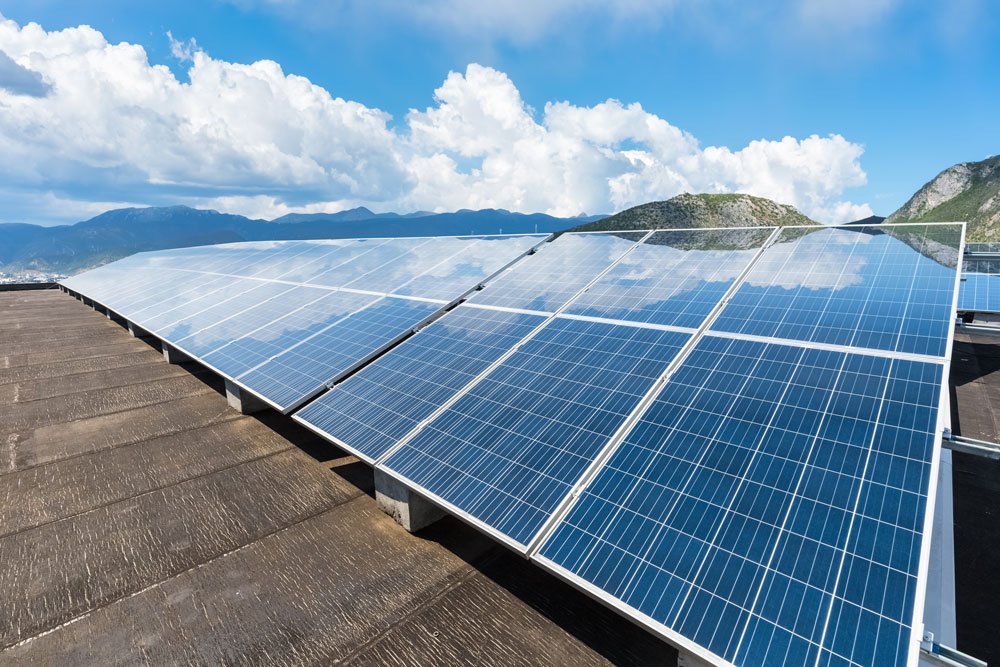
Some 260 million euros of investment is being made in photovoltaic installations (solar panels to you and me) in the Balearics. Of the 55 projects, 46 of these solar parks will be in Mallorca. For example, Enel Green Power has completed its Sa Caseta plant in Llucmajor and their second plant Nou Biniatria is being constructed outside Alcudia.
Mallorca depends on tourism and is determined to build a better and more sustainable future for the island.
A sustainable Mallorca depends on a partnership of local government, private organisations, residents and tourists who together can combine their efforts effectively for a better and cleaner future.
